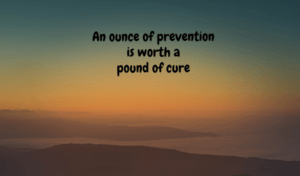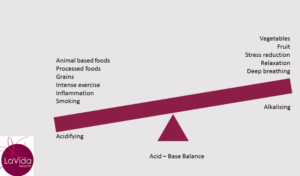Many of us, at some stage or other, want to lose weight. Maybe just a couple of kilos that have crept on over winter or perhaps it’s quite a few kilos that have accumulated over years.
Perhaps you have struggled with your weight your entire life (or it seems that way). Maybe you’ve reached a certain “stage in life” and suddenly your diet and lifestyle (which has been fine until now) is no longer your friend. You may be doing exactly what you have always done but now the number on the scale is creeping up and those clothes are feeling a bit tight.
For the lucky few, losing unwanted weight is as easy as a small tweak to your diet, a little extra daily exercise and the weight just seems to melt away.
But what if that’s not you? Have you struggled to lose weight or maybe lost some only to regain it…or worse, you’ve gained more weight than you lost?
Having spent many years in clinical practice and many hours studying the human body and all its complexities it is clear to me (and probably you) that achieving and maintaining your desired weight is hard work for most people. So, let’s look at some of the reasons why that might be so.
What you need to understand about losing weight
The kilojoules equation
This is the obvious starting point.
It’s pretty tough to lose weight if you are consuming more kilojoules than you are using. So you need to be aware of your energy intake and expenditure. You can start by simply writing down what you eat and drink and keeping note of your exercise. A pen and paper work well or you can use one of the many apps and trackers available.
Not all kilojoules are the same
Old weight loss theories were simply based on kilojoules in/kilojoules out.
However, as we learn more about nutrition and your biochemistry, we understand that not all kilojoules are equal. You need to get the right mix of good quality macronutrients (lean protein, low glycaemic carbohydrates and healthy fats) and micronutrients (the vitamins and minerals) in order to get your metabolism revving. Your ability to digest and use those kilojoules is dependent, in part, on good nutrition.
There are dozens of diets around that promote some variation of macronutrient intake or kilojoule restriction. They sometimes work for some people but often they don’t. Perhaps this is for one of the reasons listed below. However, it could also be because a particular diet is just not suited to you. It’s not right due to your underlying health, genetics, biochemistry, lifestyle or a myriad of other reasons.
So, don’t be disillusioned if the latest (fad?) diet doesn’t work for you. It’s not you, it’s the diet.
You need healthy thyroid function
Hypothyroidism (aka an underactive thyroid) affects up to 10% of women generally and even more as we age. It also affects men but is less common. Your thyroid is responsible for regulating your metabolism (amongst other tasks). An underactive thyroid (due to any number of factors) will make it harder for you to lose weight. So, have you had your thyroid thoroughly checked?
Hormonal imbalances may be driving your weight gain
An imbalance in any number of hormones may trigger weight gain.
Let’s look at stress for example. The type of constant and repeated stress many of us live with day in day out results in increased cortisol production which can play havoc with other hormones such as insulin, thyroid hormones and ghrelin (your appetite-stimulating hormone). Any one of these changes can result in your body wanting to store more fat.
Changes in levels of hormones such as oestrogen, progesterone and testosterone throughout the various life stages (or even times in your cycle if you are female) are another potential contributor to weight gain through effects on appetite and glucose metabolism.
Good sleep is vital for weight loss
There’s a whole bunch of reasons why this is important. Firstly and most obviously, we are less inclined to be active if we are tired. But it’s more nuanced than that. Poor sleep also affects hormone regulation and metabolism as well as detoxification.
Toxicity
When the amount of toxins we take onboard is greater than our bodies can process and eliminate, they have to be stored somewhere and one of our storage sites is fat cells (adipose tissue). If we are overly burdened with toxins it will be tough to lose weight because the toxins have nowhere else to go. Cleaning up your diet and lifestyle is a good place to start.
Psychology and neurochemistry
This is yet another complex area that could be driving your food choices (via addictions) or messing with your self-image, feelings of self-worth and more. Want to know more? Read 6 reasons why you eat when you don’t really need to.
A healthy gut microbiome
As we learn more about our gut microbiome (the bugs in our gut), we are becoming increasingly aware of how important a healthy and balanced microbiome is to our overall health.
We are now learning that specific types of bugs in your gut (especially if in excess of others) may make you more likely to gain weight through their impact on hormones, neurotransmitters and inflammatory processes.
Are you stuck in a weight loss rut?
So, if you are stuck in a weight loss rut, consider the above list. Are you confident that you have addressed each aspect of this list and successfully removed the obstacles to achieving and maintaining your healthy weight?
In my experience, it’s not easy to address these issues on your own and trying to go it alone may even be adding to your stress levels. Why make it tougher for yourself than it already is? That’s where I can help!
Applying a systematic approach, I will help you identify which barriers are blocking your success and help you remove them. Beyond addressing your food intake, this might involve working on your thyroid or hormonal functions, addressing stress levels, reducing toxic burden, examining your gut microbiome or helping restore sleep patterns. for example.





